Finally, it was time to open the pouch. The first item I happened to pull out was Chance’s large watch. It was still set to Baghdad time. Next were the lanyard and the wooden cross. Then the dog tags and the Saint Christopher medal. This time the chains were not tangled. Once all of his items were laid out on the table, I told his mom that I had one other item to give them. I retrieved the flight attendant’s crucifix from my pocket and told its story. I set that on the table and excused myself. When I next saw Chance’s mom, she was wearing the crucifix on her lapel.
By 1400 most of the seats on the gym floor were filled and people were finding seats in the fixed bleachers high above the gym floor. There were a surprising number of people in military uniform. Many Marines had come up from Salt Lake City. Men from various VFW posts and the Marine Corps League occupied multiple rows of folding chairs. We all stood as Chance’s family took their seats in the front.
It turned out that Chance’s sister, a Petty Officer in the Navy, worked for a Rear Admiral—the Chief of Naval Intelligence—at the Pentagon. The Admiral had brought many of the sailors on his staff with him to Dubois pay respects to Chance and support his sister. After a few songs and some words from a Navy Chaplain, the Admiral took the microphone and told us how Chance had died.
Chance was an artillery cannoneer and his unit was acting as provisional military police outside of Baghdad. Chance had volunteered to man a .50 caliber machine gun in the turret of the leading vehicle in a convoy. The convoy came under intense fire but Chance stayed true to his post and returned fire with the big gun, covering the rest of the convoy, until he was fatally wounded.
Then the commander of the local VFW post read some of the letters Chance had written home. In letters to his mom he talked of the mosquitoes and the heat. In letters to his stepfather he told of the dangers of convoy operations and of receiving fire.
The service was a fitting tribute to this hero. When it was over, we stood as the casket was wheeled out with the family following. The casket was placed onto a horse-drawn carriage for the mile-long trip from the gym, down the main street, then up the steep hill to the cemetery. I stood alone and saluted as the carriage departed the high school. I found my car and joined Chance’s convoy.
The town seemingly went from the gym to the street. All along the route, the people had lined the street and were waving small American flags. The flags that were otherwise posted were all at half-staff. For the last quarter mile up the hill, local boy scouts, spaced about 20 feet apart, all in uniform, held large flags. At the foot of the hill, I could look up and back and see the enormity of our procession. I wondered how many people would be at this funeral if it were in, say, Detroit or Los Angeles—probably not as many as were here in little Dubois, Wyoming.
The carriage stopped about 15 yards from the grave and the military pall bearers and the family waited until the men of the VFW and Marine Corps league were formed up and school busses had arrived carrying many of the people from the procession route. Once the entire crowd was in place, the pallbearers came to attention and began to remove the casket from the caisson. As I had done all week, I came to attention and executed a slow ceremonial salute as Chance was being transferred from one mode of transport to another.
From Dover to Philadelphia; Philadelphia to Minneapolis; Minneapolis to Billings; Billings to Riverton; and Riverton to Dubois we had been together. Now, as I watched them carry him the final 15 yards, I was choking up. I felt that, as long as he was still moving, he was somehow still alive.
Then they put him down above his grave. He had stopped moving.
Subscribe to:
Post Comments (Atom)
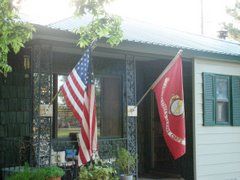
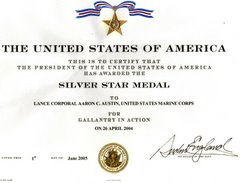
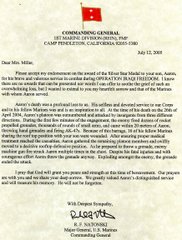
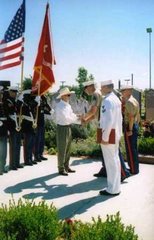


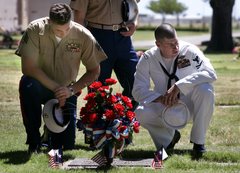

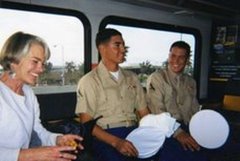

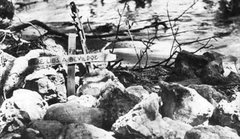


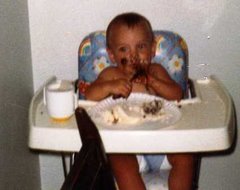

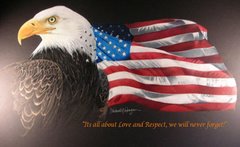
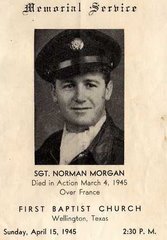
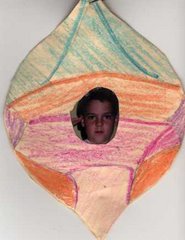

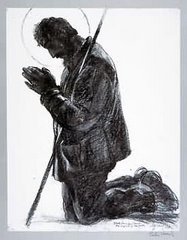
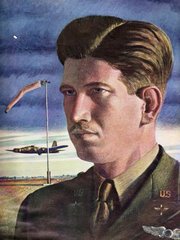
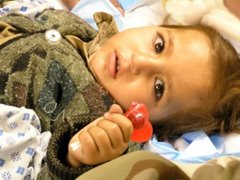
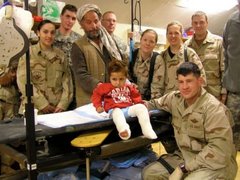
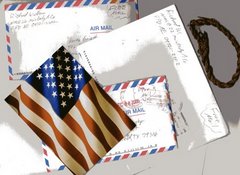

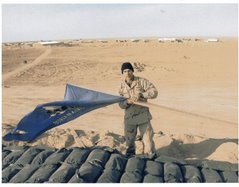


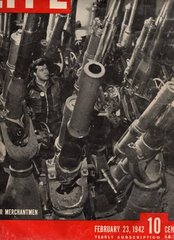
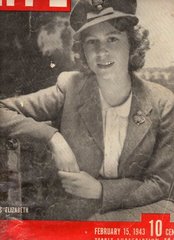

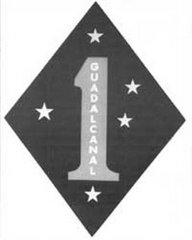
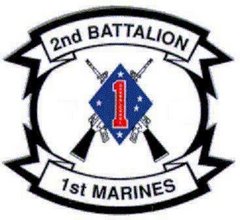


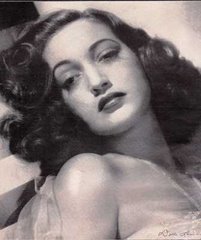

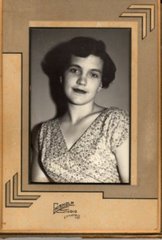

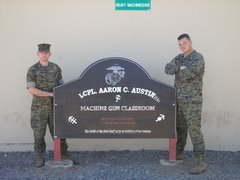

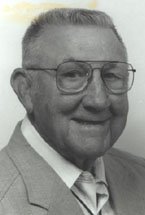

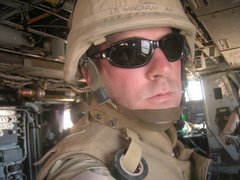
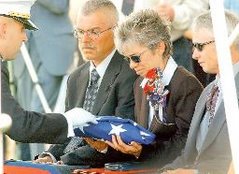


No comments:
Post a Comment